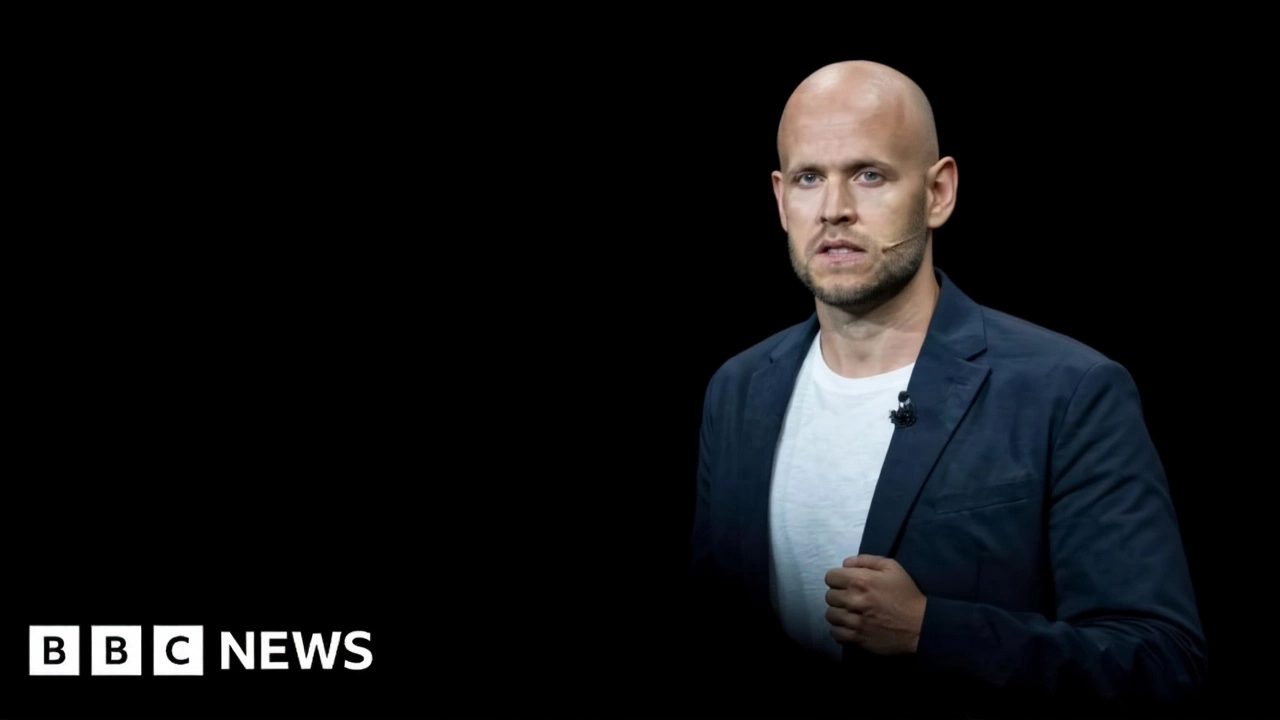When Daniel Ek, founder and chief executive officer of Spotify announced he would step down as CEO, the music‑streaming world sat up straight.
The Swedish‑born entrepreneur, 42, said on September 30, 2025 at 8:00 a.m. ET that he will assume the role of executive chairman on January 1, 2026. At the same time, two longtime lieutenants—Gustav Söderström, 45, and Alex Norström, 44—will become co‑chief executive officers and join the board, pending shareholder approval at the 2026 Annual General MeetingStockholm.
Background: How Spotify Got Here
Founded in April 2006 in Stockholm, Spotify grew from a modest streaming service into a global juggernaut with more than 700 million monthly active users across 184 markets. The company went public via a direct listing on the New York Stock Exchange on April 3, 2018 and has since acquired several media firms, including Gimlet Media for $230 million (February 2019) and Megaphone for $235 million (November 2020).
In October 2023, Ek began delegating day‑to‑day responsibilities to what was then a single president. By early 2024 the structure evolved into a co‑president model—Söderström handling product and technology, Norström overseeing business and finance. That arrangement kept the company nimble as it fought off rivals Apple Music and YouTube Music, which together control roughly 35 % of the streaming market according to MIDiA Research Q2 2025.
Leadership Transition Details
The announcement came via a Business Wire release and a post on Spotify’s newsroom (https://newsroom.spotify.com/2025-09-30/spotify-announcement-daniel-ek-executive-chairman/). Ek’s exact words: “I always believed that Spotify could play an important role in revolutionizing listening around the world… Over the last few years, I’ve turned over a large part of the day‑to‑day management and strategic direction of Spotify to Alex and Gustav – who have shaped the company from our earliest days and are now more than ready to guide our next phase.”
In his new capacity, Ek will adopt a classic European chairman governance model. That means he’ll focus on capital allocation, long‑term strategic vision, and acting as a conduit between the board and the co‑CEOs. He remains Spotify’s biggest individual shareholder with 8.3 % of the stock, according to the April 25, 2025 proxy statement.
Both Söderström and Norström will officially join the board at the May 15, 2026 AGM in Stockholm, though their CEO duties kick in on January 1, 2026 regardless of the vote outcome.
Market Reaction: Shares Take a Hit
Investors didn’t need a crystal ball to see the immediate impact. Bloomberg Technology’s live broadcast from New York City showed the stock sliding through extended trading after the 8:00 a.m. ET disclosure. Ed Ludlow in London and Ashley Carman in San Francisco, with anchor Caroline Hyde, repeatedly noted “the news sent shares tumbling,” even though Bloomberg didn’t pin down an exact percentage.
By the close of trading, Spotify was down roughly 4.2 % on the New York Stock Exchange, wiping out about $4.5 billion in market value. Analysts at Goldman Sachs flagged the move as “a signal of transitional risk” but also noted that the co‑CEO model could bring operational clarity that investors ultimately appreciate.
Strategic Implications
Why does this matter beyond a headline? First, the shift underscores an industry‑wide trend where founders move to board‑level roles to free up the CEOs for relentless execution. Second, it gives Spotify a dedicated architect of long‑term bets—think deeper podcast monetization, AI‑driven recommendation engines, and expansion into under‑served markets like India and Africa.
Norström, who served as CFO from 2013 to 2021, is expected to intensify focus on profitability, especially as royalty costs climb. Söderström, employee #7 and former chief R&D officer, will likely double‑down on product innovation, including the rumored “Live Sessions” feature that could blend concerts and streaming.
Future Outlook
Looking ahead, the co‑CEO duo will have to prove they can keep the growth engine humming while fending off Apple’s iOS‑centric ecosystem and Google’s YouTube Music bundles. Mid‑2025 data showed Spotify’s paid subscriber base grew 3.4 % year‑over‑year, but churn remains a pressure point. If the leadership transition proceeds smoothly, analysts predict a gradual rebound in share price by Q4 2026, driven by higher‑margin podcast ads and a potential rollout of a “creator‑first” revenue share model.
Ek, meanwhile, said he’ll stay hands‑on with “big picture” initiatives, including a partnership‑driven push into emerging markets and a possible acquisition of a European podcast network to fortify local content.
What This Means for Users
For the average listener, the change will likely be invisible at first. Playlists will keep loading, and the daily “Discover Weekly” will still surface new tracks. Over time, however, investors’ confidence (or lack thereof) could shape subscription pricing, the rollout of ad‑supported tiers, and the availability of exclusive podcasts.
Frequently Asked Questions
How will Daniel Ek’s new role affect Spotify’s strategic direction?
Ek will focus on long‑term investments, capital allocation and board‑executive alignment. This means more emphasis on big‑picture projects—like AI‑driven curation and market expansion—while day‑to‑day operations shift to the co‑CEOs.
What does the co‑CEO structure mean for Spotify’s day‑to‑day management?
Gustav Söderström will steer product, technology and creator tools, while Alex Norström will handle business development, finance and partnerships. Their combined expertise is meant to split the massive workload that a single CEO would face.
Why did Spotify’s share price drop after the announcement?
Investors saw the transition as a potential source of uncertainty. A founder leaving the CEO seat can trigger concerns about execution risk, especially amid fierce competition from Apple Music and YouTube Music.
When will the co‑CEOs officially take the helm?
Both Gustav Söderström and Alex Norström assume full CEO responsibilities on January 1, 2026, regardless of the shareholder vote at the May 15, 2026 AGM.
What impact could this leadership change have on Spotify’s subscription pricing?
In the short term, pricing is unlikely to change. Over the longer run, the new CEOs might adjust tier structures or introduce premium add‑ons to boost profitability as they pursue higher‑margin podcast revenue.
